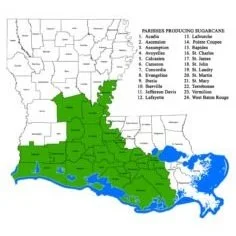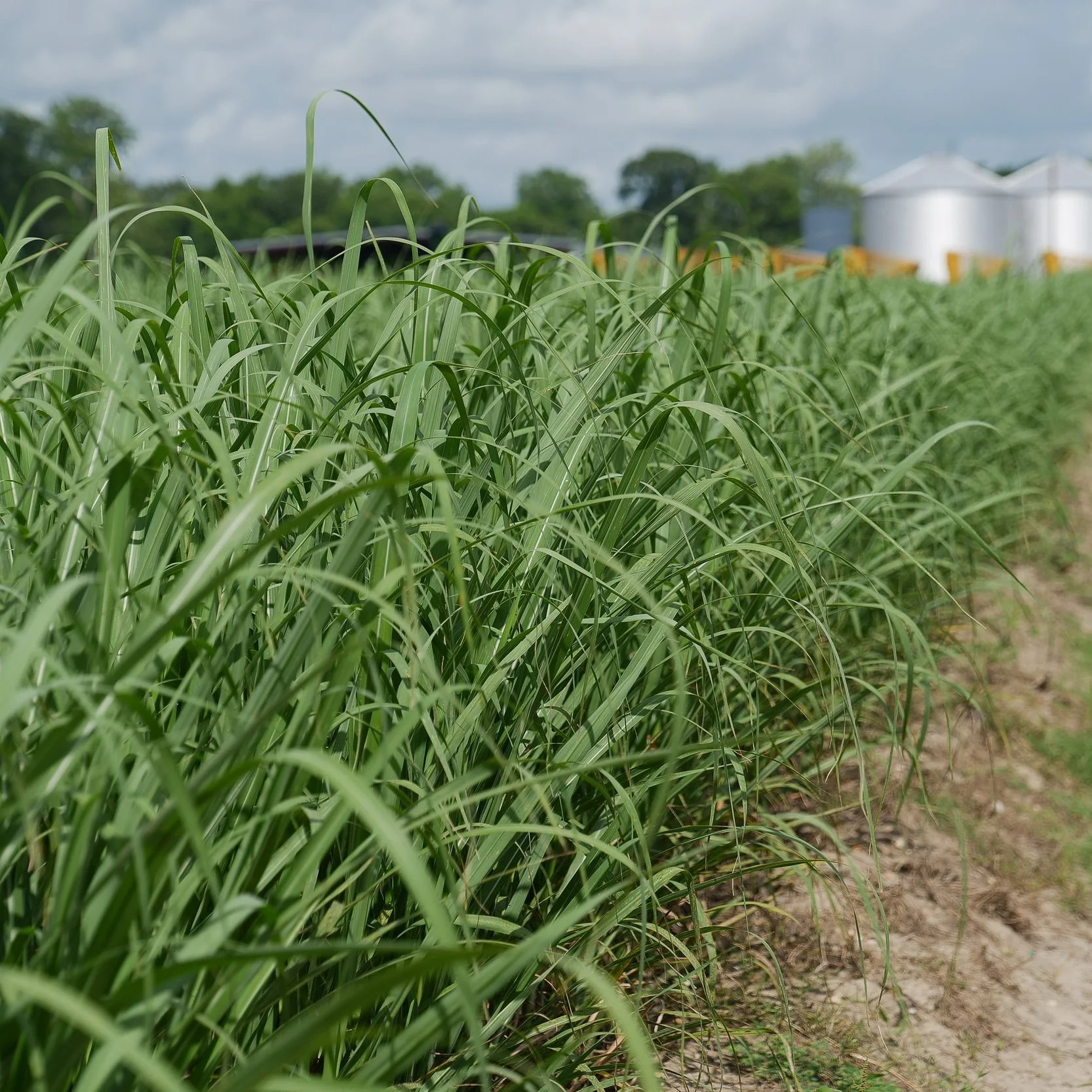A group of more than 100 sugarcane growers, LSU AgCenter researchers and other interested parties assembled at Joby Beaud’s barn in the LaBarre community north of New Roads to hear the latest about new cane variety developments, weed control and other topics.
Read MoreDelta Biofuel has announced a $100 million final investment decision for the construction and start up of a full-scale renewable fuel production facility in Iberia Parish that will convert sugarcane waste into feedstock for low-emissions energy generation.
The company is expected to create 126 new direct jobs with an average salary of $62,500. Louisiana Economic Development estimates the project will result in an additional 149 indirect jobs, for a total 275 new jobs in the Acadiana region.
Read MoreA Napoleonville Louisiana company is making headlines these days for taking something that was once a waste product generated by Louisiana's sugarcane industry and turning it into a food supplement for cattlemen and ranchers around the nation. Impact Fusion International says its products that are made with sugarcane waste known as bagasse actually enhance the essential vitamins and nutrients that both beef and dairy cattle need to maintain good health.
Read MorePatrick Frischhertz, a sugarcane grower from Plaquemine, Louisiana testified before the House Subcommittee on General Farm Commodities, Risk Management, and Credit on Wednesday, April 26.
Speaking on behalf of the American Sugar Alliance, Frischhertz called on lawmakers to maintain “an adequate economic safety net for American sugarcane and sugarbeet farmers.”
Read MorePatrick Frischhertz, a sugarcane grower from Plaquemine, Louisiana testified before the House Subcommittee on General Farm Commodities, Risk Management, and Credit. He thanked Chairman Austin Scott (R-GA-8) and Ranking Member Shontel Brown (D-OH-11) for listening to the needs of American producers as they craft the next Farm Bill.
Read MoreSustainability means producing sugarcane in a manner that is economically profitable while being a good neighbor to both the local community and environment. The benefit to society is feeding the world without exploiting natural and human resources.
The Louisiana sugar industry is accomplishing this today.
Read MoreOver the past ten years, sugarcane acreage has rapidly expanded, especially in Vermillion Parish in the western cane belt and Pointe Coupee, Avoyelles and Rapides in the north. Pointe Coupee now has more than 70,000 acres in production, when just ten years ago parish acreage was only 43,000. That’s a 62 percent increase.
Read MoreLast month the faculty of the LSU AgCenter Audubon Sugar Institute won multiple awards and honors at the 31st International Society of Sugar Cane Technologists Congress in Hyderabad, India.
Awards can act as a barometer and prove that the institute’s work has merit, said Gillian Eggleston, director of the institute, who presented research findings and received a prestigious honor at the conference.
Read MoreFor over 200 years in the United States, sugar cane field burning has been a tool that farmers use in the pre-harvest season to remove the tops of the sugar cane plant. However, the smoke from that burning can cause fog in the air, which leads to low visibility along roads and highways. This has been enough of a problem to cause road accidents, and in Louisiana, it has even caused some fatalities.
Read MoreField burning by farmers has been responsible for fatal crashes in south Louisiana in recent years, which is why Houma Representative Beryl Amedee is looking to form a task force to discuss other potential options.
Read MoreState Rep. Beryl Amedee, R-Houma, Grew up in the Terrebonne Parish Community of Schriever Surrounded by Sugar Cane Fields.
Many Members of Her Family Farmed Sugar Cane, and Her Grandfather Worked in the Thibodaux Sugar Mill. And Each Year During the Burning Season, Amedee Would Lose the Ability to Speak as Her Sinuses Flared Up.
Read MoreThe average American consumes 17 teaspoons of sugar per day, about half from sugarcane. It takes a lot of raw material to create all that sweetness, but there is a downside – what do you do with all the leftover sugarcane processing waste?
Read MoreFor six and a half years, LSU AgCenter scientists and their counterparts at other agencies have been searching for clues as to why large swaths of roseau cane are dying along Louisiana’s coast — and how to restore these areas to prevent further land loss.
Read MoreThe annual meetings of the American Sugar Cane League and the American Society of Sugar Cane Technologists Louisiana Division held Feb. 6 to 8 at L’Auberge Casino and Hotel in Baton Rouge featured growers, scientists and millers from throughout the state.
Read MoreAmerican Sugar Cane League director Jim Simon reported that the Louisiana sugarcane industry produced more than two million tons of raw sugar in 2022 for the first time ever and is now the number one cane sugar producing state in the United States.
Read More














